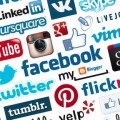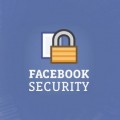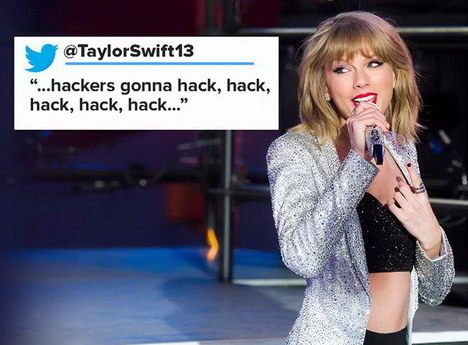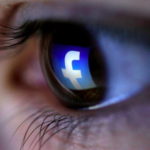10 Reasons Why Hackers Like Your Shares on Social Media
Unquestionably, in this age and time, social media has become a vital part of our modern life. For a lot of companies, social media is an incredible marketing tool. Businesses can get their name out in front of established customers and prospective customers without expending a lot of dollars. This is why many organizations hire SMM specialist to create Facebook posts or to send out daily tweets on Twitter, or they hire a freelance social media professional who can keep the company’s name in the public eye for a fraction of the cost compared to a full-time employee.
Just as a coin has two sides, similarly, social media can be an organization’s worst security nightmare too. Particularly, when outside vendors or short-term interns are hired to do social-media-related outreach. Also, the problem of safety gets increased because of our love to share more. Yes, we believe sharing is caring, but oversharing leads to privacy and security breaches. The threat with this medium of communication is that there is lesser control, and a bad post, a hack, or an improper statement can make the organization look amateurish and offensive at worst.
Also, social media gives out more information about the users and their functions, which can be valuable information for someone who is trying to plan a hack socially. Many SMM experts have been warning about the risks of this extra information broadcasting for years. There are myriad of stories about social media activity, for example, has caused significant disruption and disturbance in the lives of people from losing employee benefits to losing family. But the risk due to it is not just up to family and profession. Hackers also hunt for social media pages and use the information they find for their profit. A trillion of hackers are hard at work and are after your social security information, bank account, and social media accounts.
How Do Hackers Get Benefited From Shares On Social Media?
Full Birth Date and Location
The majority of social networking sites asks you for a good deal of data about yourself to make it effortless for other users to find and get connected with you. Perhaps the biggest exposure this gives to hackers is the possibility to identity fraud, which is becoming more and more common. Besides, the more information about yourself, you reveal online like DOB and place of birth, the easier it becomes for the hackers to know you and keep an eye on your activities.
Contact Number
Who would dare to broadcast their phone number to complete strangers? No one, right? Then, why share your digits on social media? Although you may be thinking that you’re just casually sharing with friends, but the social media hackers want your phone numbers, too. Hackers can type your phone number into a Facebook search and find your profile page if you have it registered. This could lead to break-in, scam, and falsification. Whether you, believe it or not, hackers can also bypass security and make use of your contact number as a caller I.D. to send text messages asking recipients to click unknowingly on a malware link.
Email Address
Did you know that one of the most common methods used by hackers to attack organizations is by sending employees’ emails that contain malware? Once the operator opens the attachment, their company computer gets impaired by malware which opens a “back door” letting the hacker get into the organization’s internal network through the damaged machine. The email addresses are usually collected from social media, as many of us update our email id on the social media page, in cases where we are going to a particular business conference. They can also send an email message that could trick as news from the conference organizations. In this manner, there is a higher probability that the employee would not doubt the authenticity of the attachment, and inevitably open it.
New Credit Card
It may sound a no-brainer, but some people become excessively happy about receiving a new credit card and end up sharing this news with a pic on their social media accounts. Doing this is just handing social media hackers exactly what they wished for. Putting your credit card info on your social media wall gives them effortless access to your financial accounts since your name and account number present on the card could without difficulty turn your life chaotic. Your new shiny plastic is a high-value aim for attackers whose plans may be to buy goods and services. Or else they may also sell your card along with others in bulk in online markets, card malls, and carding forums.
Residential Address
To stop intruders showing up at your home would be one reason not to share your residential address on social media platforms. However, social media hackers are not just looking to rob your home, in reality, they are looking out to get everything you are worthy for nowadays. Home addresses are majorly used by financial institutions to verify your identification which can be used by muggers to create more persuasive and substantial phishing schemes that can eventually lead to identity theft, credit card fraud and other exploitation that deal a misfortune to the end user victimized.
Friends, Followers and Contact
The first thing anyone will do after updating their personal details with any social networking application is making connections with other people. Apparently these contacts are people you recognize and trust – but you may also be connected to an online community of similar interest individuals that you have never met. The most important thing to understand here is what kind of information you are sharing with this online community. Because while you use social network account such as Facebook, Twitter, LinkedIn, etc., ample information about yourself is gathered, considering that people you know and trust will not misuse the information you post. However, private hackers or Hacktivists are always in search of such information to misuse them.
Social Plans
Sharing your social plans for everyone to take a look isn’t a good thing. For instance, if you have bought tickets for a seven-day Bahamas cruise and wanted to share your departure date on Facebook? It is probably a bad idea. Hackers are getting cleverer and cleverer day by day. Anyone today can easily carry out a search in Tweetdeck or Mention based on a keyword or keyword phrase, including the criminals who can do the same search for “Vacation” posts within your zip code. It is good to be excited about the cruise trip and maybe boasting about it. But if you will be doing it ensure that your post is set only to your friends! Although, the best time to post your cruise pics is once you are back, instead of making yourself an easy target.
Hashtags
Hashtags make it very simple for a hacker to follow a conversation on social media sites like Twitter. So, be cautious what you hashtag because social media hackers are watching your each and every move. Sharing information excessively about yourself or your whereabouts can be pretty straightforward with hashtags, especially with society now having the inclination to #hashtag their whole life. But hashtags can be a helpful tool for hackers as they provide another way for attackers to grab information about you. Also, you must be careful about using hashtags as hackers might make a fake user profile to drive interest and followers via a post that shows popular hashtags. So, once any user follows or connects with the hacker, they are now in the trap of a suspicious URL, attachment, watering hole and many other kinds of malicious payloads. Moreover, also don’t share too much and be alert of who you engage with on social media platforms.
Which Place Have You Checked In
Though it’s fun and cool, checking into your desired places on Twitter, Foursquare, or Facebook it isn’t very wise. In fact, it would be smart not to check in, because social media raiders will know where you are or where you are not. This informs hackers that you will be using your credit card at various locations, making it accessible to post transactions that would otherwise be unexpected. It also leaves you more exposed to the threat for when you do online banking and are using unsecured internet connections, notifying hackers to look for this. Such information provides social media hacker information to where you will probably be again, as well.
Sharing Online Content
It’s great to share a link to a website and grab your friend’s & contact’s attention. But you never know that hackers are always with bated breath to such content, and you cannot think of what kind of reaction will they have? For example, if you share (or even “like”) a website that does battle with some position taken by your government, for instance, agents of that government will immediately take an interest and target you for additional investigation or direct custody. So, if you want your contacts and obviously the administrators of the social networking platform you use to be the only ones who can view the things you share or mark as useful, then make sure you check your privacy settings.
To Conclude
Remember, social media platforms are not just for chatting with friends or playing games, it is also a business hub for hackers to spread their malware and steal user information. Hackers are becoming more and more refined and are now looking to create a healthy & trusted relationship with their prey that helps them in gathering more details about their target before them compromising. Thus, make sure never to share your password with anyone on social media. Hackers can hack your account can exploit that password. So be aware of the cyber-crimes happening in the cyber world and smartly survive on the internet.
Author: Monica Johns
Hi, I am Monica Johns, Digital Marketer at Techno Infonet. I love writing content on WordPress Development, PHP Developer, eCommerce, SEO, Mobile Application, Digital Marketing and many more . Here, I wish to share knowledge pertaining to these topics and know the opinion of this community member.
You May Also Like:
 10 Ways How Hackers Attack Your Social Media Accounts
10 Ways How Hackers Attack Your Social Media Accounts
 Best Times to Get Most Likes, Shares & Tweets on Social Networks
Best Times to Get Most Likes, Shares & Tweets on Social Networks
 40 Best Social Media Search Engines to Find People & Profiles
40 Best Social Media Search Engines to Find People & Profiles
 20 Popular IFTTT Recipes to Automate Social Media Marketing
20 Popular IFTTT Recipes to Automate Social Media Marketing
 10 Must-Know Social Media Tips to Promote Your Blog
10 Must-Know Social Media Tips to Promote Your Blog
 3 Tools to Search and Store Your Facebook, Twitter and Other Social Media Activity
3 Tools to Search and Store Your Facebook, Twitter and Other Social Media Activity
 8 Easy Tips to Protect Your Facebook Account from Hackers
8 Easy Tips to Protect Your Facebook Account from Hackers
 Top 20 Apps & Tools for Managing All Your Social Media Accounts
Top 20 Apps & Tools for Managing All Your Social Media Accounts
Tags: privacy & security, smm, social media
Comments are closed.



































